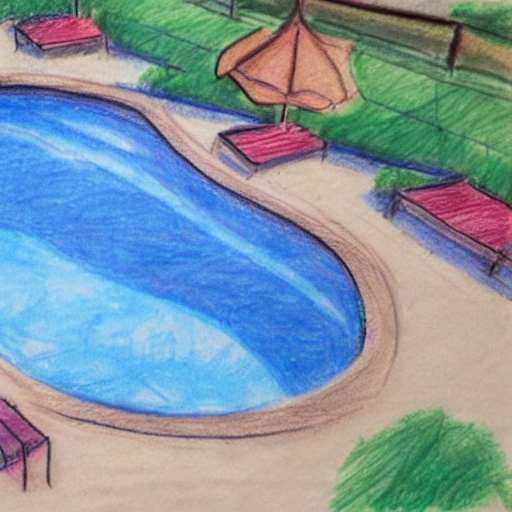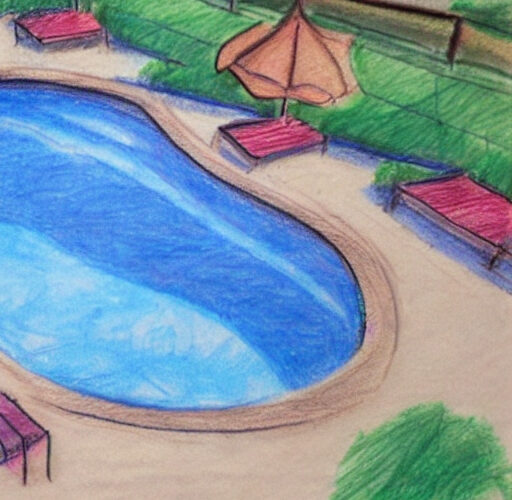Swimming Pool Drawing

The Art of Swimming Pool Drawing
Introduction
Swimming pools are a symbol of relaxation, luxury, and a fantastic way to beat the heat. But what if I told you that swimming pools can also be a source of artistic inspiration? Drawing a swimming pool can be a fun and creative endeavor, allowing you to capture the serene beauty of this aquatic retreat on paper. In this article, we’ll explore the art of swimming pool drawing and offer some tips to help you get started.
Materials Needed
Before diving into your swimming pool drawing, you’ll need the right tools. Here’s what you’ll require:
- Paper or sketchbook
- Pencils of varying hardness (2B, 4B, 6B, etc.)
- Eraser
- Ruler
- Coloring materials (optional)
Getting Started
Now that you have your materials ready, it’s time to start your swimming pool drawing. Follow these steps:
- Choose a reference image: Find a photo or visit a swimming pool location to inspire your drawing.
- Start with the outline: Use your ruler and a light pencil to sketch the basic shape of the pool, surrounding deck, and any nearby features like loungers or umbrellas.
- Detail the water: The water’s surface should be represented with gentle, flowing lines. Make sure to capture the reflections and ripples.
- Add surroundings: Draw in the surrounding landscape, which could include trees, plants, or buildings.
- Shading and texture: Use different pencil hardnesses to add shading and texture to the pool, the deck, and the objects around it.
- Optional: Color your drawing to make it even more vibrant and lifelike.
Tips for Realism
If you want your swimming pool drawing to look realistic, consider the following tips:
- Observe the play of light: Pay attention to how the sunlight interacts with the water and surroundings, creating highlights and shadows.
- Capture reflections: Reflections in the water can be challenging but add depth and authenticity to your drawing.
- Study textures: Different materials, such as concrete, tiles, and water, have unique textures. Use your pencils to convey these differences accurately.

Leave a Reply